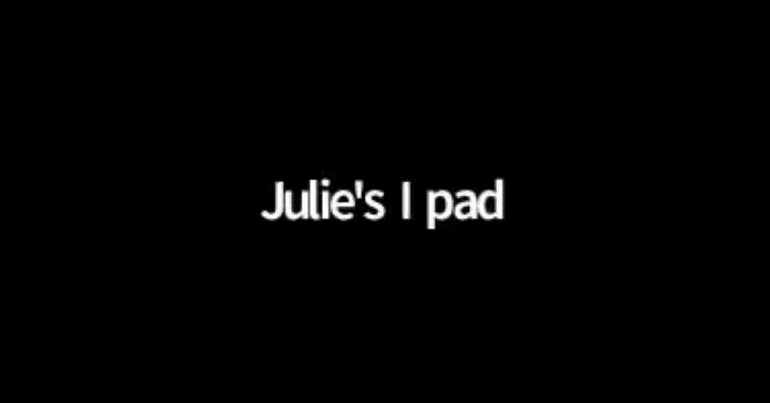7 things we can learn from Handforth Parish Council

Everyone’s talking about Handforth Parish Council!
I suspect part of the reason this video so popular is not because people think it’s absurd but because it’s all too relatable. Everyone has been in a Zoom fiasco of some scale during the pandemic. And most everybody have sat through a poorly run, chaotic or seemingly pointless meeting.
Of course, some of the funniest parts have nothing to do with Handforth Parish Council: Julie’s lovely iPad message, random echoes of ‘what’s going on’ and ‘is this zoom’, the older man cackling at the iPad, and all this after poor Jackie encourages people people to turn off their microphones, a request which itself is interrupted by mumblings from Aled’s iPhone. This is the age old story of human beings vs. technology and it’s a joy every time.
But beyond this there is a lot more. Thinly veiled sexism, not-at-all veilied classism, poor chairing/facilitation and bad meeting etiquette.
We often don’t talk much about these things and as someone who helps organise meetings a lot, I think it’s actually pretty cool that a viral video has led to debate over these topics.
- It’s clear that the context for the meeting is sour. This is not extraneous. If there is bad feeling between participants in a meeting, especially if it pertains to a previous meeting, it is vastly advantageous to deal with this outside large meetings. This requires time and patience, it’s serious work and is often unseen and undervalued.
- Standing orders or internal rules for meetings are intended to make meetings run better. In Handforth they are used by the Chair to stop people questioning his views and to shut down whole meetings. If standing orders are routinely used in a way that allows such carryings-on, they are not fit for purpose.
- In any meetings of more than four people or so – and this is especially true online – it’s important to have a clear system for establishing who gets to speak. In Handforth, it’s often the law of the playground. (‘This is a meeting called by two councillors’ / ‘lllegally’) Some people thrive in this envrionment. I tend to find that pushy and loud people are not neccesarily any wiser than the rest, and meetings need a system to ensure they don’t get to hog the mic.
- Microaggressions shouldn’t be ignored. The way the Chair says ‘will you please LISTEN’ and Cllr Burkhill tells Jackie Weaver ‘you don’t know what you’re talking about’ is more akin to the way adults speak to children than one adult speaking to a peer. This spills into outright aggression when he commands ‘I TAKE CHARGE – READ THE STANDING ORDERS READ THEM AND UNDERSTAND THEM’, followed by off-camera legal threats.
- Most viewers agree that Jackie Weaver, the hero in the script, removes people from the meeting with good reason. But she doesn’t explain these reasons to those present and doesn’t seek endorsement for her actions. People in facilitator roles serve the participants and so must build trust in their role.
- The replacement chair, John, fares little better. He leaves his points hanging, making it unclear if others can interject, and often seems to rely on people just butting in. It’s also not clear that he understands how Zoom works. This is a collection of small things and everyone should find that training and practice improved their skills on such things.
- The real heroes are those who make helpful suggestions to keep the meeting running, most notably Cynthia and Sue, both of whom raise concerns clearly and honestly as well as bringing solutions. I have often found such roles taken up by women and the work they do is repeatedly overlooked.
In that sense it’s worth commending the surviving members of the Committee who seem to get through their business very ably after the nasty circumstances at the start. Theirs is thankless and important work and I am very grateful for people who keep local government going.
There’s a lot more to be said about the way Parish Councils (Community Councils for Scots) are sidelined and underfunded and how that creates bad feeling. There is indeed a slight Downfall vibe to it all. But I don’t for one minute think the above problems stem from only that. Meetings are also just hard, and need to be worked at.
A good balance of clear process and flexibility, with participants and facilitators who are prepared, self-aware and well intentioned, makes for a good meeting.
Oh and by the way I’m in favour of it being set-up as a sub-committee of the Planning and Environment Committee, instead of a new Task Force.
PS. We hope you enjoyed this article. Bright Green has got big plans for the future to publish many more articles like this. You can help make that happen. Please donate to Bright Green now.
PPS. Bright Green has an exciting series of events coming up. Join us for debates, interviews and much more.




I am not sure as to how this has helped me, or anyone. What is the significance of this piece of confusion ??
You have NO AUTHORITY here, Brian Gill.
You have no authority here, Brian Gill.